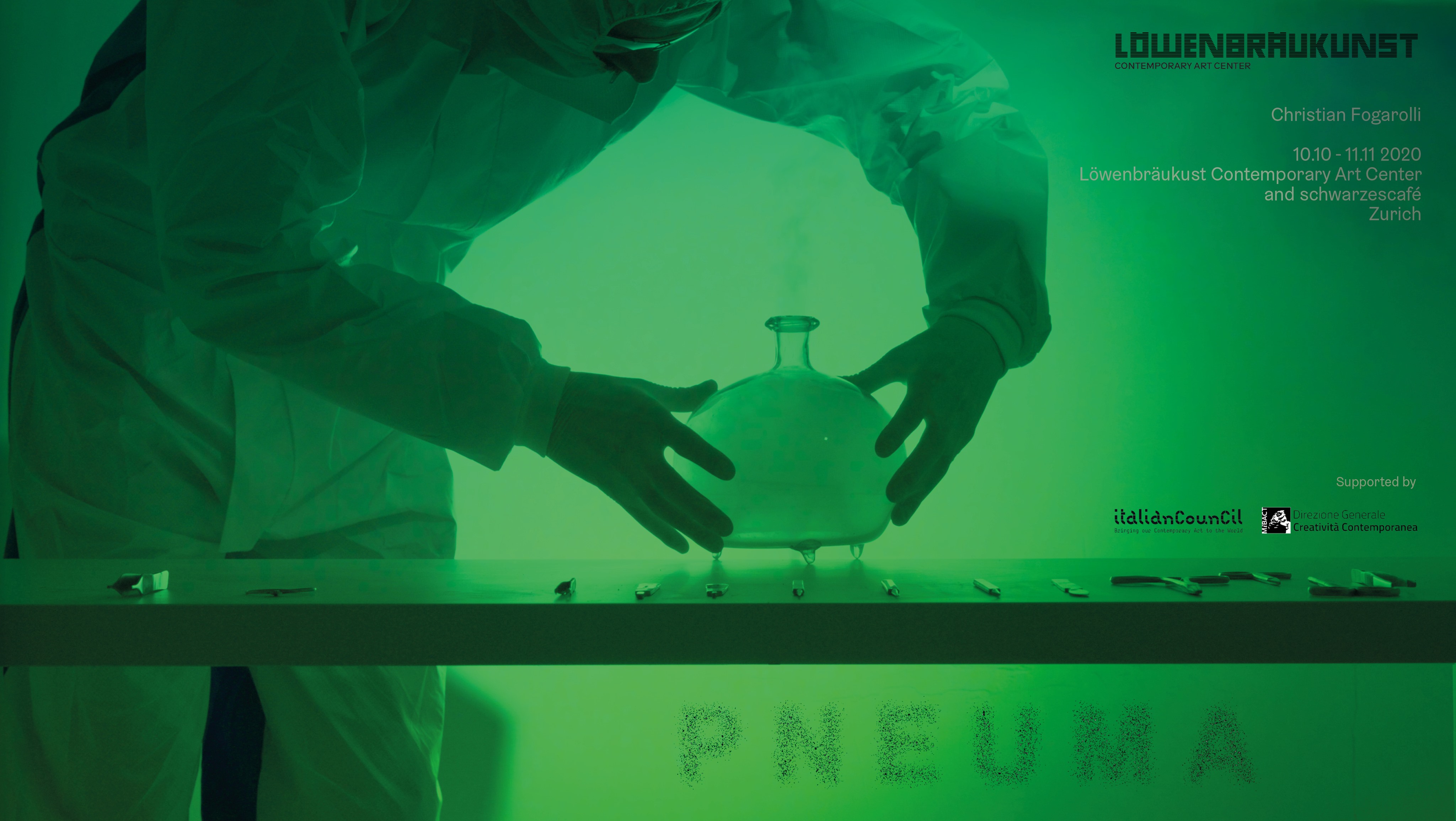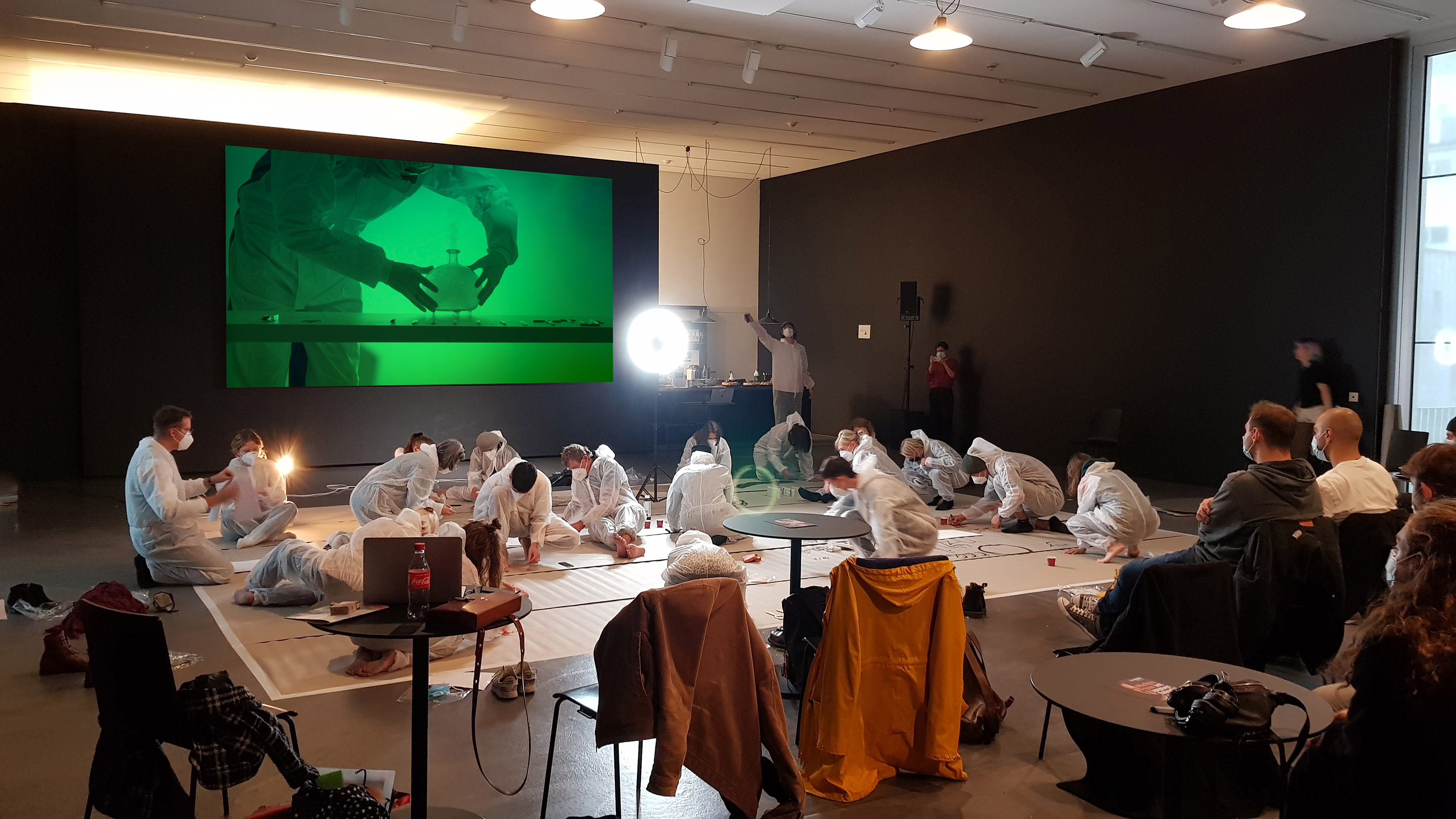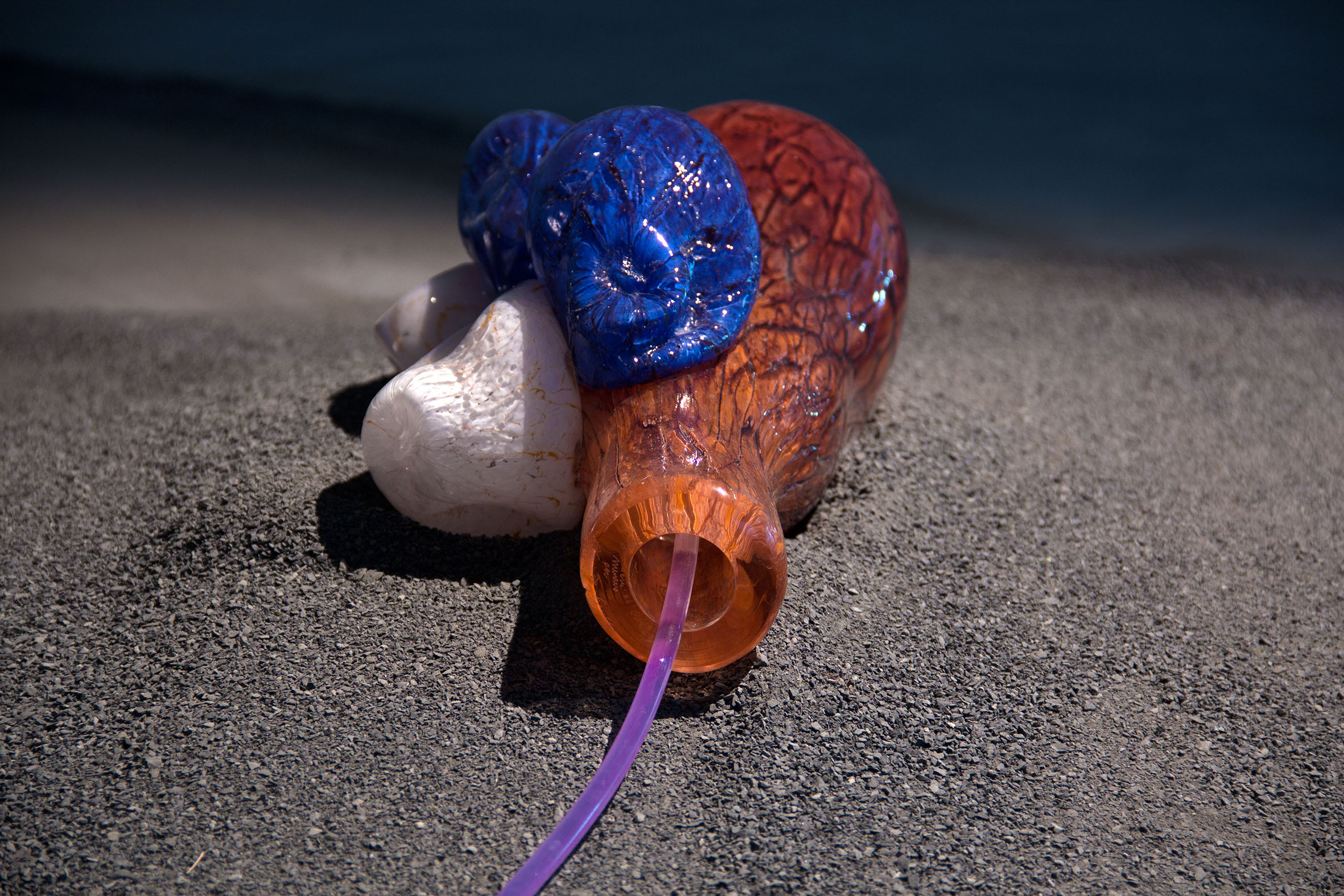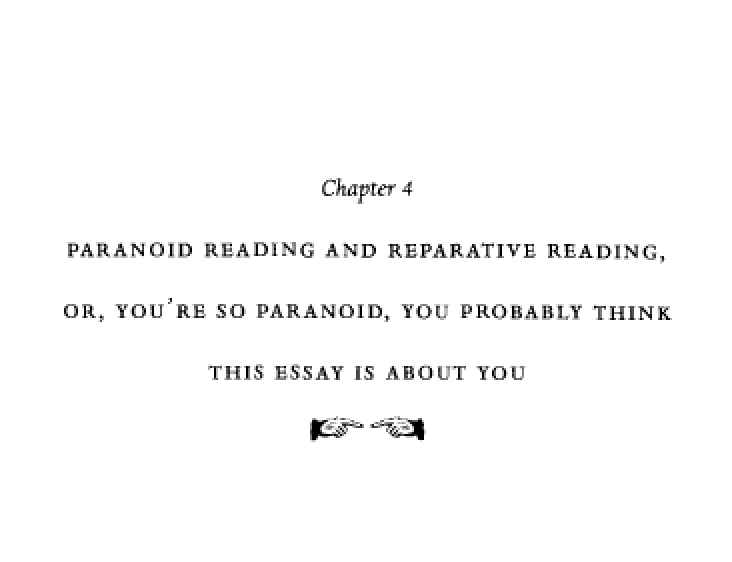Pneuma
Format: Exhibiton (static)
Opening: 10.10.2020
Duration: 11.10. – 25.11.2020
Location: Objekt A | Löwenbräukunst, Zürich
Mental Health Day
Format: Events (inter-active)
Duration: 10.-12.11.2020
Locations: Objekt A
and schwarzescafé | Löwenbräukunst, Zürich,
as well as online.
In collaboration with the Pneuma project by Christian Fogarolli, dis- order brings the theme of psychological discomfort into the spaces of contemporary art at Löwenbräukunst and aims to bring together two realities all too often perceived as different.

Flyer of the exhibition Pneuma by Christian Fogarolli, 2020

Performance Workshop of the Living Museum, schwarzescafé | Löwenbräukunst, Zürich 2020
PROGRAM
Do. 22.10., 18:00–20:00
Film-screening:
Loulou by Nathan Hofstetter
When a person loses control over thinking and feeling, when perception becomes distorted...
Do. 29.10.,18:00–20:00
Reading Group 1:
Eve Sedgwick: Paranoid Reading and Reparative Reading, or, you’re so paranoid, you probably think this essay is about you
So. 1.11., 16:00–18:00
Giuided Meditation:
Communal Interoception
Do. 5.11., 18:00–20:00
Reading Group 2:
Johanna Hedva: Sick Woman Theory
Sa. 7.11., 19:00–20:00
Performance:
Yael Wicki: Dead Reckoning
So. 8.11., 14:00-17:00
Sonntagsgespräch Denkkreis/Wasteland
Do. 12.11.
Finissage & Film-screening:
Arts&Mind by Amélie Ravalec
All contributions
Do. 22.10., 18:00–20:00
Film-screening:
Loulou by Nathan Hofstetter
When a person loses control over thinking and feeling, when perception becomes distorted...
Do. 29.10.,18:00–20:00
Reading Group 1:
Eve Sedgwick: Paranoid Reading and Reparative Reading, or, you’re so paranoid, you probably think this essay is about you
So. 1.11., 16:00–18:00
Giuided Meditation:
Communal Interoception
Do. 5.11., 18:00–20:00
Reading Group 2:
Johanna Hedva: Sick Woman Theory
Sa. 7.11., 19:00–20:00
Performance:
Yael Wicki: Dead Reckoning
So. 8.11., 14:00-17:00
Sonntagsgespräch Denkkreis/Wasteland
Do. 12.11.
Finissage & Film-screening:
Arts&Mind by Amélie Ravalec
All contributions

until Nov 25
During the one year research-project Fogarolli has undertaken a European-wide journey to various psychiatric institutions, their history and current programs for stabilizing mental health. Exploring the immateriality and intangibility of mental illness, the artist’s research leads to some current questions: Are we still able to start a process of de-stigmatization and reconsideration of mental illness? How do we consider the binary condition that distinguishes normality from deviance? By analysing various geographical and cultural contexts, the exhibition questions the stigma and taboo often connected to the mental health disease.
Visit Christian Fogarolli's website

Oct 22
Eve Sedgwick: Paranoid Reading and Reparative Reading, or, you’re so paranoid, you probably think this essay is about you
Excerpt:
I am saying that the main reasons for questioning paranoid practices are other than the possibility that their suspicions can be delusional or simply wrong. Concomitantly, some of the main reasons for practicing paranoid strategies may be other than the possibility that they offer unique access to true knowledge. They represent a way, among other ways, of seeking, finding, and organizing knowledge. Paranoia knows some things well and others poorly.
I’d like to undertake now something like a composite sketch of what I mean by paranoia in this connection—not as a tool of differential diagnosis, but as a tool for better seeing differentials of practice. My main headings are:
Paranoia is anticipatory.
Paranoia is reflexive and mimetic.
Paranoia is a strong theory.
Paranoia is a theory of negative affects.
Paranoia places its faith in exposure.
Go to the text